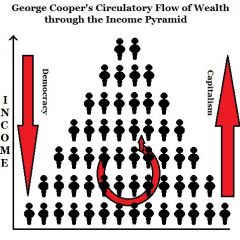After BrExit, the EU and UK could impose complementary tariffs on each other’s exports at a non-discriminatory level, say 10%. EU tariffs, and balancing UK tariffs would help, not hurt, the macro-economics of both.
EU Tariffs in UK Trade
Both the EU and the UK economies are unbalanced. Some parts of these economies are going very well, but other parts are struggling. Trade is the main cause of this imbalance. Reducing trade makes it more likely that a national government could regain control of its own economy.
The continuing pressure to reduce comparative costs means that there is a growing trend for more concentration of manufacturing activity. This results in some parts of the each region booming, but other parts are left destitute. Yet “Cheaper prices for everything” is a mantra, not a complete policy. This is because it results in widespread and irreparable unemployment. It is only half a policy. A complete policy would attempt to balance employment and prices over time. 100 years of unemployment, as happened as a result of the Enclosure Movement, is not acceptable in a democracy, nor is it acceptable to most clear thinking adults.
Agricultural Subsidies cause hurt
The EU is infamous for its agricultural subsidies. These reduce the prices of agricultural goods, but make farmers dependent upon government handouts, and therefore on the tax contributions of other taxpayers. It also is in flagrant breach of the spirit of the WTO rules on trade.
If the UK did not grant its own agricultural producers EU-style subsidies, the UK could help its own farmers by introducing tariffs on all imported agricultural goods from every other nation.
In addition, if the EU continues with their agricultural subsidies, the UK would be entitled to invoke anti-dumping penalties. With that prospect hanging over their heads, the EU may be prepared to consider allowing discriminatory tariffs to be imposed on EU exports of agricultural goods into the UK, over-and-above the tariff on agricultural goods from other nations.
Tariffs are better than Quotas
Quotas can have a place in food production since it is natural objective of every nation to maintain a large measure of self-sufficiency in food for cultural and defence reasons. Yet tariffs are more economically efficient than quotas. This is because they allow the market to establish a close-to-optimal division of labour between economic sectors.
Quotas are not economically efficient. They can result in much higher prices of now-scarce goods, even leading to a doubling of prices. They can also result in super-profits for importers who have a licence to import up to the quota level, since they are now dealing in scarce goods.
